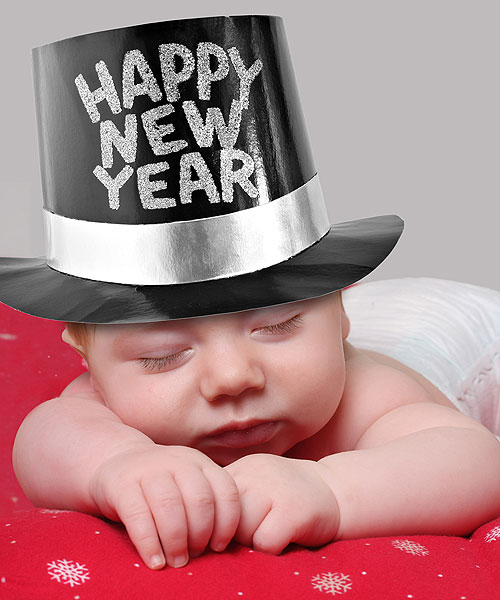
History of New Years Celebrations
- ArticlesandContent.com (CIRCA 2005)
- /
- Oct 8, 2021 (written 2005)
As the calendars have changed over the millennia, so has the day on which people celebrate New Years Day.
However, the history of the New Years Day is almost as old as the human conception of time itself. From the advent of the first calendars in Mesopotamia thousands of years ago, New Years Day has been a time for friends, family and celebrations.
According to history, New Years Day was celebrated at least as far back as 2000 BC. Although it was probably celebrated earlier than that, this is the when actual records of the celebrations occur. These records show that the Babylonians, from whom we get so many traditions concerning everything from the way we do math to how we keep track of the stars, celebrated New Years Day on the day when the moon was just visible after having gone dark after the vernal (spring ) equinox. This would have put New Years Day for the Ancient Babylonians near the end of March or possibly the beginning of April, depending on the year. The celebration was tied not just to the new year, but also to the planting of the crops and the earth coming back to life after winter.
Some of the traditions we associate with New Years Day originate with the Babylonians. For example, the tradition of New Years resolutions is thought to have begun at this time. History tells us that the custom of making a New Year’s resolution began with the Babylonian custom of returning something that they had borrowed from a neighbor or friend on New Year’s Day. The Romans would carry on the custom of the resolution by promising themselves to ask for forgiveness from an enemy or someone they had wronged the previous year.

the god of wine, being reborn as the spirit of fertility.
The Greeks and the Egyptians
New Years Day still has strong associations with things that are young and new, like the New Year’s Baby. This tradition, however, is not Babylonian in origin, but with the Greeks and the Egyptians. Both of these cultures also celebrated New Years in the spring time, and the celebration of spring and newness and plantings and fertility were big themes in the celebrations. In the Greek tradition, Baby New Year is Dionysus, the god of wine, being reborn as the spirit of fertility. They would parade babies around the city and the festivals in baskets as a symbol of Dionysus’s rebirth.
Another New Year’s tradition that we get from the ancients is celebrating the very minute that the New Year begins. Today we have precise ways of measuring time and know to the exact second when the new year begins. While the ancients did not have the luxury of atomic clocks, they did believe that the first things a person did on the first day of the new year would affect the luck they would or would not enjoy over the coming year. That is why it was important to begin the year with friends, family, food and fun; it was thought to bring good luck for the rest of the year.
Like most pagan holidays, the church frowned upon celebrating this particular holiday in the beginning. St. Eligius, who lived in Europe in the 600’s, warned against celebrating New Years Day. One of the reasons why the church acquiesced in its quest to ban the New Year celebration is because of the symbol of the baby. Although they tried to associate the infant with Christ, and the baby Christ is a powerful symbol, the association never really caught on and most people think of the two as separate entities. Still, the celebrations continue to this day with the traditions passed down to us over thousands of years.